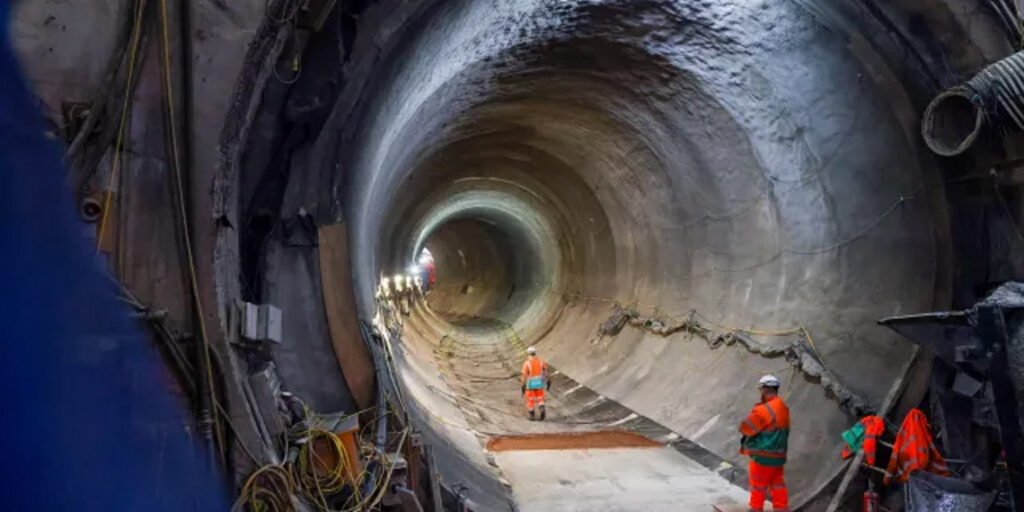Households served by Thames Water have seen their water bills rise by £160 to fund London’s “super-sewer” project, the Thames Tideway Tunnel, which is set to become fully operational next year.
Meanwhile, executive salaries at Tideway, the company behind the project, have sparked outrage due to significant increases, with its CEO receiving an additional £1.7 million in pay last year.
The Thames Tideway Tunnel is a monumental 16-mile (25km) sewer system stretching from Acton in west London to Beckton in the east.
Its primary objective is to prevent raw sewage from overflowing into the Thames during periods of heavy rainfall. Currently, even light rainfall can overwhelm London’s ageing sewage infrastructure, forcing untreated waste into the river.
The project represents the most significant upgrade to London’s sewage system since Sir Joseph Bazalgette’s work in the 1860s. By intercepting and storing sewage, the tunnel will drastically reduce pollution in the river.
Initially projected to cost £3.5 billion, the tunnel’s budget has ballooned to an estimated £4.61 billion due to pandemic-related delays, inflation, and complex engineering challenges. The project’s completion has been pushed to late 2025.
Since 2016, Thames Water customers have been funding the project through additional charges on their bills. The cumulative cost has reached about £136 per household, with another £26 expected before the project’s completion, bringing the total to £162.
Annual charges for the project have increased from £12 per household in 2016/17 to £26 for 2024/25. While Tideway has pledged to cap annual contributions at £25 in 2014/15 prices (£33.40 adjusted for inflation), the cost recovery will span decades.
According to the water regulator Ofwat, customers will continue paying for the project “over an extended period” to cover its estimated 100-year asset lifespan. Ofwat’s next price review, scheduled for 2030, will determine future charges.
As customers bear the financial burden of the project, Tideway’s executive pay has drawn criticism. CEO Andy Mitchell’s remuneration surged from £928,000 in 2021/22 to £2.73 million in 2022/23, a £1.7 million increase. Similarly, CFO Matthew Duncan’s pay tripled, rising from £468,000 to £1.44 million during the same period.
Tideway attributed the pay hikes to a long-term incentive plan tied to milestones, including the completion of the tunnel’s boring phase. These figures include salaries, bonuses, pension contributions, and taxable benefits.
The Thames Tideway Tunnel project is unfolding against a backdrop of financial instability at Thames Water, which is grappling with a £15.2 billion debt and deteriorating infrastructure.
Ofwat has provisionally approved a 53% hike in annual water bills over the next five years, increasing the average household bill from £436 to £667.
A Thames Water spokesperson defended the project, stating, “For around £2 a month, the Thames Tideway Tunnel, combined with prior sewage upgrades, will capture 95% of untreated sewage that currently enters the Thames in a typical year.”
Tideway has also relied on £764.5 million in shareholder loans with an 8% interest rate, set to mature in 2064.


